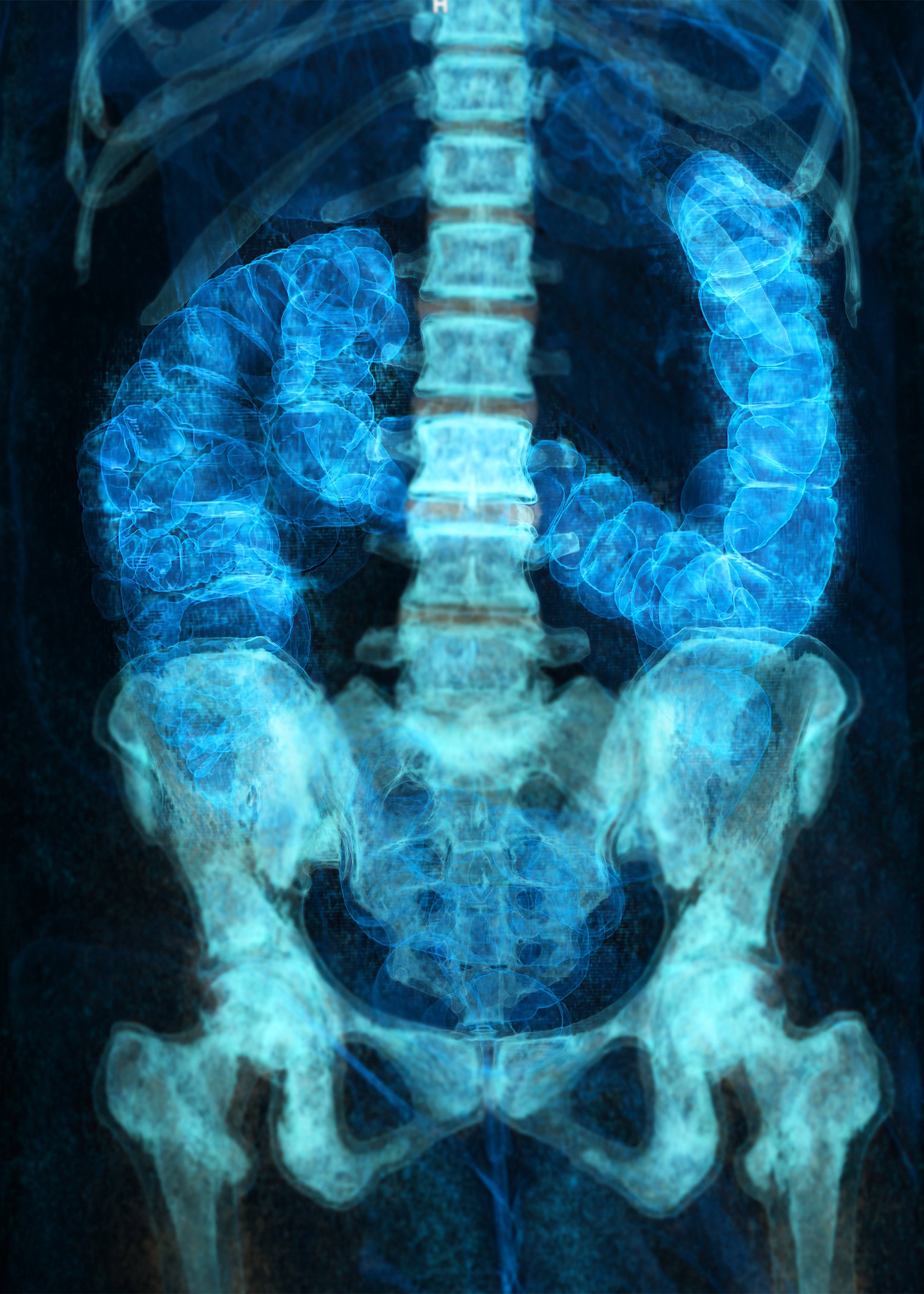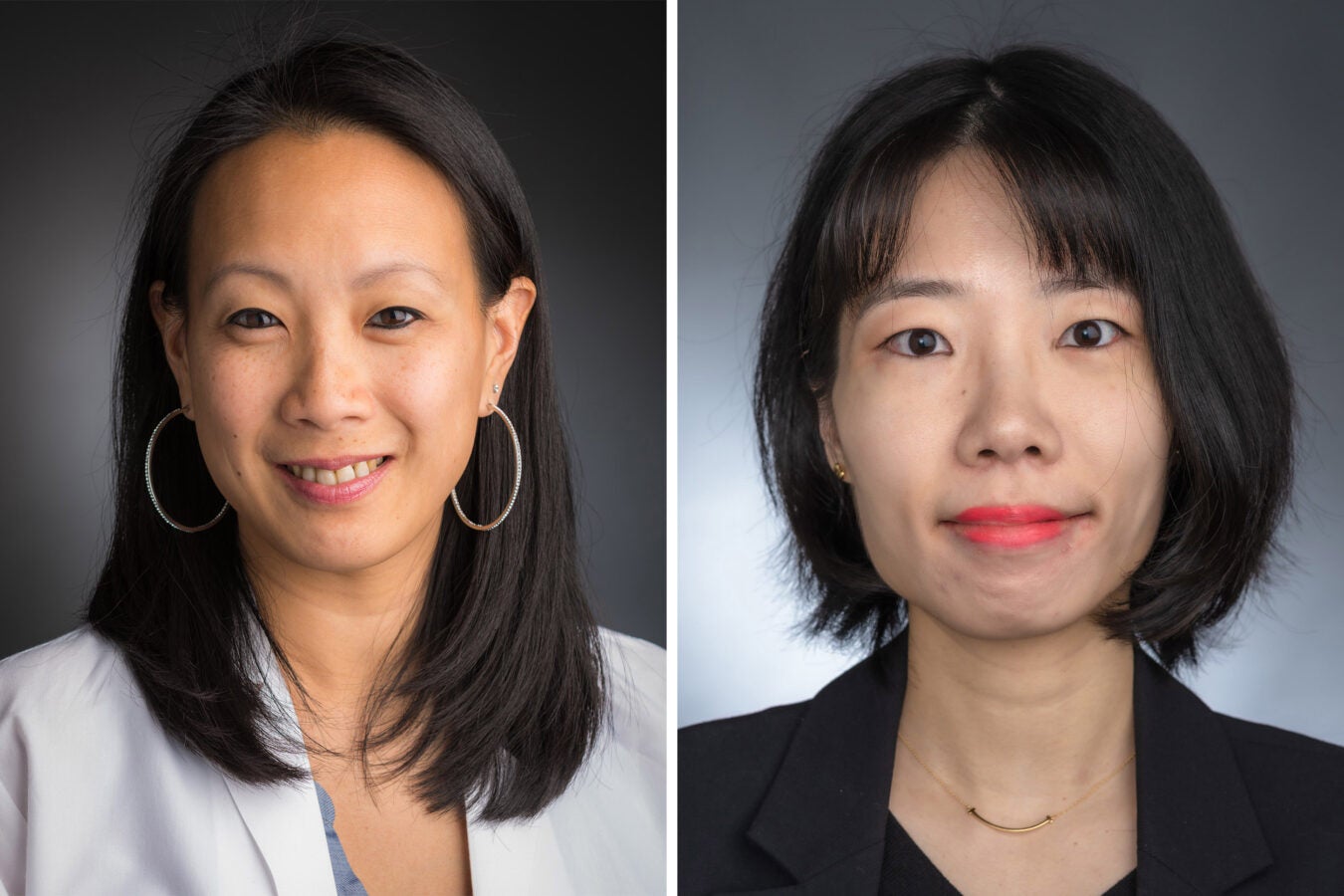
Psychologist David H. Rosmarin discusses his new book “Thriving with Anxiety.”
Kris Snibbe/Harvard Staff Photographer
Study finds link between breastfeeding, rise in adult colorectal cancer risk
Mothers should not halt practice of breastfeeding, which offers many benefits to infants, as much more research is still needed, scientists say.
If you’re in your early 70s or younger, you could be part of a worrying trend of a rising incidence of colorectal cancer risk — and possibly for surprising reasons, according to a new study.
Scientists began picking up on the shift in the mid-1990s when they began seeing an increase in cases in people age 50 or younger, about the time when those born in the 1950s would have begun routine screening.
“The increase that we’ve been seeing is about 2 percent per year since the mid-1990s,” said Kimmie Ng, the associate chief of the division of gastrointestinal oncology at Dana-Farber Cancer Institute and an associate professor of medicine at Harvard Medical School. “So, a person born in 1990 now has quadruple the risk of getting colorectal cancer compared to a person born in 1950.”
Why? According to new research by Ng , the answer might flow through a mother’s milk. Together, Ng, along with first author Chen Yuan, an instructor in medicine at the Dana-Farber Cancer Institute, analyzed data from about 160,000 women aged 27 to 93. They found those who were breastfed as infants had a 23 percent greater risk of developing colorectal cancer as adults. Even more troubling, a younger group within that cohort exhibited about 40 percent increased risk of developing high-risk colorectal cancer before they turned 55.
The researchers warn, however, that more study is required, and this analysis shouldn’t dissuade mothers from breastfeeding. Medical professionals say breast milk is the best nutritional source for most babies; it can also help boost an infant’s immune system and even lower the risk of certain illnesses and diseases, including asthma or ear infections for babies and breast cancer or diabetes for mothers.
Ng and Yuan shared how they vetted their findings and what other factors might be at play. The interview was edited for length and clarity.
Q&A
GAZETTE: So, why look at breastfeeding as a potential answer for the recent increase in cases among those 50 and younger, or young-onset colorectal cancer?
YUAN: Prior to the recent increase, there was a period of declining rates. It’s probable that alterations in early life exposures are significantly contributing to this concerning trend. For example, recent research highlighted a link between maternal obesity and increased colorectal cancer risk in offspring. When considering breastfeeding rates in the United States, there was a decline to less than 30 percent from the early 20th century to the 1960s. Subsequently, these rates rebounded, surpassing 60 percent in the 1990s, which aligns with the observed trend in young onset colorectal cancer rates.
NG: That led us to believe that there’s some recent environmental change that is likely underlying this rise in young onset colorectal cancer.

For their study, Kimmie Ng (left) and Chen Yuan analyzed data from about 160,000 women aged 27 to 93.
Courtesy of Dana-Farber Cancer Institute
For their study, Kimmie Ng (left) and Chen Yuan analyzed data from about 160,000 women aged 27 to 93.
Courtesy of Dana-Farber Cancer Institute
GAZETTE: What data did you use? And what, exactly, did you find?
YUAN: We used the Nurses’ Health Study I and II and identified a total of 49 key incident factors of colorectal cancer over 20 years of follow-up. Having been breastfed was associated with a 23 percent increase in the risk of colorectal cancer. And the risk increased with duration of being breastfed. Among participants from the Nurses’ Health Study II, a significant association was observed between being breastfed and increased risk of high-risk adenomas under age 50, which are precursor variants of colorectal cancer. And consistently, having been breastfed was associated with nearly 40 percent increased risk of colorectal cancer among participants aged 55 or younger.
GAZETTE: How were you able to rule out other lifestyle factors like smoking or diet?
YUAN: So, in a subset of nearly 40,000 participants in these cohorts, we had the opportunity to reach out to their mothers to gather extensive information regarding smoking and alcohol intake during pregnancy and comorbidities as well as weight and height. A really long list of variables.
GAZETTE: And breastfeeding still showed the biggest association with colorectal cancer? That’s pretty shocking.
NG: It is. We were surprised as well. If you’re breastfeeding, obviously, a lot of maternal health factors are passed along to the infant. So, the natural question is: Could it just be that maternal health comes bearing this increased risk? And it really doesn’t. The other thing that was valuable about the mother’s questionnaire is there is a lot of recall bias, right? The patient’s recall is not always perfect. So, to have a mother validate that their daughter was breastfed in infancy, it adds another level of accuracy to our analysis.
GAZETTE: What kinds of questions did you ask the participants — and their mothers — about their diets?
YUAN: We asked the mothers broader questions, but we asked participants very detailed questions about their diet. We used the Food Frequency Questionnaire , which has about 160 food items, including almost everything that’s common in a U.S. diet. Colorectal cancer is strongly linked to adulthood diet. And we found the association between breastfeeding and colorectal cancer was not affected by diet.
GAZETTE: Were there any limitations to your study? Any gaps you plan to address moving forward?
NG: Our cohort only included women participants, and 95 percent of them are white. So, we don’t know if these findings apply to other genders, races, or ethnicities. There are known disparities in the incidence and mortality of colorectal cancer by race and ethnicity. African Americans are 20 percent more likely to develop colorectal cancer, often at a younger age, and 40 percent more likely to die. But if you’re looking at people under the age of 50, the rate of rise is steepest in the non-Hispanic white population, such that some of these disparities are being narrowed. We’re not sure why we’re seeing these ethnic, racial differences.
GAZETTE: Any hypotheses?
NG: I think it has to do with Westernized lifestyles. We’re mostly seeing this rise in higher socio-economic status populations. It also could be that we haven’t adequately studied those minority populations. The incidence and mortality disparities by race and ethnicity are probably largely due to poor access to good quality health care and screenings.
GAZETTE: Chen, you mentioned that the risk increased with the duration of being breastfed, too. Was there a specific amount of time associated with that increased risk? And how much greater was the risk?
YUAN: The participants were asked whether they were breastfed for less than or equal to three months, four to eight months, or greater than or equal to nine months. Our analysis found that compared to non-breastfed women, those breastfed for these durations experienced a 14 percent, 17 percent, and 36 percent increase in risk, respectively.
GAZETTE: So, what now? Do you plan to search for what your study calls “underlying biological mechanisms” that could be behind this association? Kimmie, I know you study the microbiome in your lab. Could that be a factor here?
NG: Most suspect that breastfeeding impacts the infant’s microbiome, usually, in a favorable way. We’re not quite sure how the microbiome may be playing a role here. Chen also looked at people who were not breastfed and got formula or cow’s milk or whatnot. And those substances are fortified with things like vitamin D, which has been linked to decreased risk of colorectal cancer as well as improved survival from colorectal cancer. So, could it be not the breastfeeding itself but actually what the non-breastfed infants were receiving as nutrition? There are so many different questions and hypotheses but because all of this is just an association, right now, we do not want anyone to think the message is not to breastfeed.


